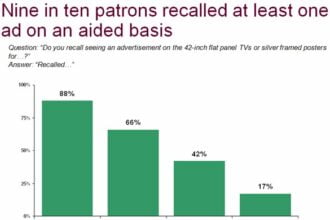 Originally published on MedCityNews.com. It might not seem like a fitting name for a medical company – or at least one that you’d expect – but Iron Horse Diagnostics actually makes a lot of sense.
Originally published on MedCityNews.com. It might not seem like a fitting name for a medical company – or at least one that you’d expect – but Iron Horse Diagnostics actually makes a lot of sense.
 Originally published on MedCityNews.com. It might not seem like a fitting name for a medical company – or at least one that you’d expect – but Iron Horse Diagnostics actually makes a lot of sense.
Originally published on MedCityNews.com. It might not seem like a fitting name for a medical company – or at least one that you’d expect – but Iron Horse Diagnostics actually makes a lot of sense.
The name comes from baseball great Lou Gehrig, nicknamed “The Iron Horse.” He died from amyotrophic lateral sclerosis (ALS), one of the neurodegenerative diseases the startup thinks it can help diagnose earlier.
The one-man, Scottsdale, Arizona company is developing a series of protein-based biomarkers to function as diagnostic and prognostic tests for the disease, which affects nerve cells in the brain and the spinal cord. Because ALS has non-specific symptoms that could also be indicative of other diseases, it’s difficult to diagnose.
There’s also no cure for ALS, but Robert Bowser, professor and chairman of neurobiology at Barrow Neurological Institute, said the interventions available to help manage the disease tend to work better if they’re administered sooner. One FDA approved drug, riluzole (Sanofi-Aventis), for example, has been shown to slow progression of the disease in clinical studies. Typically, the disease is fatal within five years of diagnosis.
Bowser is also founder of Iron Horse Diagnostics, and he said that the company has just secured a pharmaceutical partner to validate its two ALS tests. “We’ve already performed studies in 23 centers in the U.S. where samples were collected and shipped to the lab,” he said. “The overall accuracy of the test was 93 percent.”
Next, he’s gearing up to run another 300-subject prospective study at six more sites. The lab-based tests look for levels of proteins called pNfH and complement c3, which Bowser and fellow researchers have identified as being important components of the disease. One test uses a patient’s cerebrospinal fluid, and the other uses a blood sample, he said.
Down the line, he hopes to develop additional prognostic assays that would be used to monitor ALS progression and gauge the effectiveness of new drugs in clinical trials. In the meantime, Iron Horse is also working on a blood biomarker that would allow earlier and more confident diagnosis of traumatic brain injury.
Before launching Iron Horse in 2012 with technology he developed as a faculty member at the University of Pittsburgh, Bowser co-founded a drug development company called Knopp Biosciences. That Pittsburgh-based company is developing drugs for ALS and in 2010 signed a licensing deal with Biogen Idec. Earlier this year, though, the drug failed to prolong life or slow loss of muscular function in people with the disease in a Phase 3 trial.
Supported so far by an SBIR grant from the National Institutes of health and some private funding, Iron Horse is seeking funding for clinical trials.






_9_1-250x220.jpg)

